Discover The Full Plate Podcast with Abbie Attwood, MS
The Full Plate Podcast with Abbie Attwood, MS

The Full Plate Podcast with Abbie Attwood, MS
Author: Full Plate by Abbie Attwood
Subscribed: 94Played: 5,530Subscribe
Share
© Abbie Attwood
Description
Full Plate is a podcast about healing from diet culture, creating peace with food, reclaiming body autonomy and trust, and taking a weight-inclusive approach to our well-being.
Each week, Abbie interviews guests or answers listener questions that explore our relationship to food and our bodies.
Abbie is an anti-diet nutritionist with a master’s in nutrition and integrative health. She is also the founder and owner of Abbie Attwood Wellness, a virtual private practice dedicated to weight-inclusive care, food freedom, body image healing, and dismantling diet culture.
Find Full Plate on Instagram @fullplate.podcast
Abbie is @abbieattwoodwellness
This show is ad-free and listener-supported. For bonus episodes and more content, join us on Patreon: http://www.patreon.com/fullplate
abbieattwoodwellness.substack.com
Each week, Abbie interviews guests or answers listener questions that explore our relationship to food and our bodies.
Abbie is an anti-diet nutritionist with a master’s in nutrition and integrative health. She is also the founder and owner of Abbie Attwood Wellness, a virtual private practice dedicated to weight-inclusive care, food freedom, body image healing, and dismantling diet culture.
Find Full Plate on Instagram @fullplate.podcast
Abbie is @abbieattwoodwellness
This show is ad-free and listener-supported. For bonus episodes and more content, join us on Patreon: http://www.patreon.com/fullplate
abbieattwoodwellness.substack.com
205 Episodes
Reverse
Because it's the end of the year, I figured we needed this one: Yasmine Cheyenne helps us walk some of our most challenging paths: self-forgiveness, people-pleasing, unhealthy relationships, and comparison.In this revisited episode, we explore:How perfectionism leads to self-abandonmentSetting boundaries as protection from burnoutHow early relational dynamics shape the way we show up in the worldIdentifying red flags in relationshipsBreaking free of what keeps us stuck in painful cyclesHow we lose ourselves when we make choices out of fearWhat is really happening when we compare ourselves to othersUsing our past as information — not a life sentenceYasmine Cheyenne is a self-healing educator, mental wellness advocate, author, and motivational speaker who helps people cultivate daily practices to build healthy, joyful lives. Yasmine’s app, The Sugar Jar Community®, provides meditations and healing workshops to support our mental wellness. She’s been featured on the Today show, InStyle, Forbes, and more. An Air Force veteran and native New Yorker, she now lives in Washington, DC with her family.Support the show: Enjoying this podcast? Please support the show on Substack for bonus episodes, community engagement, and access to "Ask Abbie" at abbieattwoodwellness.substack.com/subscribe Apply for Abbie’s Group Membership:Already been at this anti-diet culture thing for a while, but want community and continued learning? Apply for Abbie's monthly membership: https://www.abbieattwoodwellness.com/circle-monthly-group Social media:Find the show on Instagram: @fullplate.podcastFind Abbie on Instagram: @abbieattwoodwellness Podcast Cover Photography by Anya McInroyPodcast Editing by Brian WaltersThis podcast is ad-free and support comes from your support on Substack. Subscribe HERE. This is a public episode. If you'd like to discuss this with other subscribers or get access to bonus episodes, visit abbieattwoodwellness.substack.com/subscribe
This is a free preview of a paid episode. To hear more, visit abbieattwoodwellness.substack.comIf you’re heading into this season feeling overwhelmed, under-rested, or bracing yourself for the inevitable comments about food, bodies, health, or “being good”… you’re in good company. And you deserve support.Below are the questions I’m answering this month’s community Q&A episode (thinking we should call these Q&As our monthly Full Plate Potluck??? Anyone?!🤣).My thoughts on the first two questions are free for everyone, and the rest are behind the paywall. Join as a paid subscriber for access to this full Q&A, all other bonus content, and my undying love and gratitude for helping to keep the lights on around here.Question 1: Prioritizing rest while others are prioritizing diet cultureQuestion 2: Clothing, Consumerism, and Body Image “Fixes”Question 3: The Temptation to Restrict with Body Comparison (to our former selves and others)Question 4: Other People’s Opinions and Choices with FoodQuestion 5: Comparison and Boundaries with Close Friends and FamilyI hope you enjoy this episode, and please use the Substack comments to let me know what questions you have for our next Q&A!Support the show: Enjoying this podcast? Please support the show on Substack for bonus episodes, community engagement, and access to "Ask Abbie" at abbieattwoodwellness.substack.com/subscribeApply for Abbie’s Group Membership:Already been at this anti-diet culture thing for a while, but want community and continued learning? Apply for Abbie's monthly membership: https://www.abbieattwoodwellness.com/circle-monthly-groupSocial media:Find the show on Instagram: @fullplate.podcastFind Abbie on Instagram: @abbieattwoodwellnessPodcast Cover Photography by Anya McInroyPodcast Editing by Brian WaltersThis podcast is ad-free and support comes from your support on Substack. Subscribe HERE.
Perimenopause often starts quietly. Maybe your sleep gets weird, maybe your cycles change, maybe you just don’t feel like yourself. And when that happens, most of us do the obvious thing: we start looking for information. We want reassurance. We want a roadmap.And that’s where the trap springs.Because the loudest voices don’t talk to you like a human moving through a profound hormonal transition. No—they talk to you like a problem, a project, and a body in need of tightening, shrinking, purifying, or fixing.Cole Kazdin returns (her second time on the pod!) to talk to me about this whole mess.We get into so much in the episode, including:• the sneaky ways diet culture slips into menopause advice• the reactivation of old eating disorder behaviors• orthorexia, “eating clean,” and restriction as coping mechanisms• the research on midlife vulnerability to dieting• longevity and nutrition misinformation• reclaiming exercise from wellness culture• how we can experience more joy, autonomy, and nourishment during this transitionSupport the show: Enjoying this podcast? Please support the show on Substack for bonus episodes, community engagement, and access to "Ask Abbie" at abbieattwoodwellness.substack.com/subscribeApply for Abbie’s Group Membership:Already been at this anti-diet culture thing for a while, but want community and continued learning? Apply for Abbie's monthly membership: https://www.abbieattwoodwellness.com/circle-monthly-groupAbout Cole:Cole Kazdin is a four-time Emmy Award-winning journalist, writer, and performer. She is the author of What’s Eating Us: Women, Food, and the Epidemic of Body Anxiety and has contributed to The Moth Presents All These Wonders. Cole has written for outlets including VICE, TIME, The New York Times, and Cosmopolitan, and produced for Good Morning America, Nightline, and Netflix. A celebrated storyteller, she’s performed on The Moth Mainstage nationwide and NPR’s The Moth Radio Hour, and currently teaches writing at UCLA Extension. She lives in Los Angeles. Find the show on Instagram: @fullplate.podcastFind Abbie on Instagram: @abbieattwoodwellness Podcast Cover Photography by Anya McInroyPodcast Editing by Brian WaltersThis podcast is ad-free and support comes from your support on Substack. Subscribe HERE. This is a public episode. If you'd like to discuss this with other subscribers or get access to bonus episodes, visit abbieattwoodwellness.substack.com/subscribe
This is a free preview of a paid episode. To hear more, visit abbieattwoodwellness.substack.comEating disorders have long been treated through talk therapy, nutrition support, and medication, but what happens when these approaches aren’t enough? In this episode, we sit down with Dr. Marissa Raymond-Flesch, a leading researcher exploring the potential of psychedelic therapies as a treatment for anorexia.We dive into:The science behind psychedelic therapy and its emerging applications in mental health.Current research on psychedelics for anorexia and what the early findings suggest.How psychedelic therapy could complement traditional approaches to eating disorder care.The ethical and safety considerations surrounding this innovative treatment.Questions researchers are still asking and the future possibilities in the field.Whether you’re a clinician, researcher, or someone with lived experience, this episode offers a thoughtful, evidence-based look at a groundbreaking frontier in eating disorder treatment.Support the show: Enjoying this podcast? Please support the show on Substack for bonus episodes, community engagement, and access to "Ask Abbie" at abbieattwoodwellness.substack.com/subscribeApply for Abbie’s Group Membership:Already been at this anti-diet culture thing for a while, but want community and continued learning? Apply for Abbie's monthly membership: https://www.abbieattwoodwellness.com/circle-monthly-groupMore on Dr. Raymond-Flesch's clinical trial: https://eatingdisorders.ucsf.edu/spanya-studyMore on Dr. Raymond-Flesch: https://profiles.ucsf.edu/marissa.raymond-fleschSocial media:Find the show on Instagram: @fullplate.podcastFind Abbie on Instagram: @abbieattwoodwellnessPodcast Cover Photography by Anya McInroyPodcast Editing by Brian WaltersThis podcast is ad-free and support comes from your support on Substack. Subscribe HERE.
Deb Benfield, RDN, returns to talk about what it really means to age unapologetically. We explore how diet culture and anti-aging messaging collide in midlife, why our bodies deserve more kindness (not more control), and how to build a relationship with food, movement, and aging that feels spacious and grounded rather than restrictive and punishing.Deb shares practical, compassionate ways to reclaim vitality, joy, and presence in a world obsessed with youth and thinness.We get into:How to move from “I know diet culture is harmful” to actually living differentlyWhy aging can feel so emotionally charged — and how to process grief without self-criticismNourishment vs. optimization: fueling your body without chasing “anti-aging fixes”Navigating ageism, visibility, and the pressure to stay youthfulWhat joyful, sustainable movement can look like in midlifeHow to reclaim pleasure, rest, and spaciousnessThe legacy we offer younger generations when we age without apologySupport the show: Enjoying this podcast? Please support the show on Substack for bonus episodes, community engagement, and access to "Ask Abbie" at abbieattwoodwellness.substack.com/subscribe Apply for Abbie’s Group Membership:Already been at this anti-diet culture thing for a while, but want community and continued learning? Apply for Abbie's monthly membership: https://www.abbieattwoodwellness.com/circle-monthly-group Social media:Find the show on Instagram: @fullplate.podcastFind Abbie on Instagram: @abbieattwoodwellness Podcast Cover Photography by Anya McInroyPodcast Editing by Brian WaltersThis podcast is ad-free and support comes from your support on Substack. Subscribe HERE. This is a public episode. If you'd like to discuss this with other subscribers or get access to bonus episodes, visit abbieattwoodwellness.substack.com/subscribe
This is a free preview of a paid episode. To hear more, visit abbieattwoodwellness.substack.comLiving with chronic illness changes everything—energy, trust in your body, and even your relationship with food. In this episode, I answer a listener question about why chronic illness and disordered eating overlap so often.I get personal about:My own experiences with autoimmune flares and how they made wellness “solutions” tempting.Pain, uncertainty, and hyper-awareness of the body.Navigating food choices with chronic illness.Nutrition misinformation about “inflammation” and health conditions.Weight stigma, ableism, and moralizing health.How disordered eating can become a coping mechanism—and ways to step out of that cycle.If you’ve ever felt pulled into restriction, protocols, or wellness promises while living in a sick body, this episode is for you.Support the show: Enjoying this podcast? Please support the show on Substack for bonus episodes, community engagement, and access to "Ask Abbie" at abbieattwoodwellness.substack.com/subscribe Apply for Abbie’s Group Membership:Already been at this anti-diet culture thing for a while, but want community and continued learning? Apply for Abbie's monthly membership: https://www.abbieattwoodwellness.com/circle-monthly-group Social media:Find the show on Instagram: @fullplate.podcastFind Abbie on Instagram: @abbieattwoodwellness Podcast Cover Photography by Anya McInroyPodcast Editing by Brian WaltersThis podcast is ad-free and support comes from your support on Substack. Subscribe HERE.
Shana Spence, a registered dietitian (who you might know as @thenutritiontea on social media), joins the pod to bust myths about processed foods and to discuss how family, culture, privilege, and societal influences shape our relationship with food.This is a rerun – we recorded this conversation over a year ago, and misinformation about food and ingredients has only intensified. This episode feels important to share again right now, especially in light of recent reductions in food assistance programs.Shana shares how her initial career path and disordered eating fueled her decision to become a dietitian, and reflects on how dietetics education perpetuates diet culture, focusing on BMI and stereotypes. She talks about her perspective shift over time, the process of moving toward an anti-diet and weight-inclusive approach, and why the social determinants of health matter more than individual food choices.Tune in to hear more about…The pressure of food restriction as a badge of honorPrivilege affecting food choicesThe misleading fears about processed foodsThe oversimplification of food into good vs. bad categories. How family and cultural background impact dietingExternal societal pressures on our relationship with foodDiet culture and healthismDietitian education's role in perpetuating diet cultureStereotyping in healthcareShana’s perspective shift on nutrition and dietingRestriction as a form of validationBlack-and-white thinking in nutritionWhy we don't need to "fix" people's eating habitsShana Spence is a Registered Dietitian Nutritionist based in New York, who considers herself an “eat anything” dietitian, and counsels on a HAES (Healthy At Every Size) and an Intuitive Eating approach. She is also the author of Live Nourished - Make Peace with Food, Banish Body Shame, and Reclaim Joy. Find her website here https://www.thenutritiontea.com/ and find her on instagram at @thenutritiontea.Support the show: Enjoying this podcast? Please support the show on Substack for bonus episodes, community engagement, and access to "Ask Abbie" at abbieattwoodwellness.substack.com/subscribe Apply for Abbie’s Group Membership:Already been at this anti-diet culture thing for a while, but want community and continued learning? Apply for Abbie's monthly membership: https://www.abbieattwoodwellness.com/circle-monthly-group Social media:Find the show on Instagram: @fullplate.podcastFind Abbie on Instagram: @abbieattwoodwellness Podcast Cover Photography by Anya McInroyPodcast Editing by Brian WaltersThis podcast is ad-free and support comes from your support on Substack. Subscribe HERE. This is a public episode. If you'd like to discuss this with other subscribers or get access to bonus episodes, visit abbieattwoodwellness.substack.com/subscribe
This is a free preview of a paid episode. To hear more, visit abbieattwoodwellness.substack.comI'm joined by Dr. Regina Lazarovich, a clinical psychologist, Health at Every Size (HAES)–aligned provider, and someone with lived experience of binge eating and perfectionism. Together, we unpack the lesser-discussed connection between high achievement, perfectionism, and binge eating, and how shame and restriction can keep us stuck in painful cycles with food.Tune in as a paid subscriber for more on:*The connection between perfectionism and binge eating — and why it’s rarely talked about.*Why restriction (mental, emotional, and physical) often drives binge eating, not “lack of willpower.”*Regina’s story of developing binge eating disorder amid academic and cultural pressures.*The shame cycle: how guilt after binge eating fuels renewed restriction and perfectionistic resolve.*Why binge eating is a protective response from the body — not a personal failure.*The impact of immigrant identity, family expectations, and internalized achievement pressure on self-worth and body image.*The moral hierarchy of eating disorders — and how fatphobia shapes which struggles get compassion.*Tangible ways to interrupt the binge–restrict cycle and begin to bring compassion to our relationship with food.*Approaching binge eating through a body-trusting, HAES-aligned lens.This is a bonus episode for paid Substack subscribers. Paid members receive:*Extra full-length conversations like this one*Bonus in-depth essays on body image, food, and movement*Access to the entire archive of paywalled episodes and newsletters*Deeper, more personal reflections and behind-the-scenes insightsSupport the show: Enjoying this podcast? Please support the show on Substack for bonus episodes, community engagement, and access to "Ask Abbie" at abbieattwoodwellness.substack.com/subscribeApply for Abbie’s Group Membership:Already been at this anti-diet culture thing for a while, but want community and continued learning? Apply for Abbie's monthly membership: https://www.abbieattwoodwellness.com/circle-monthly-groupSocial media:Find the show on Instagram: @fullplate.podcastFind Abbie on Instagram: @abbieattwoodwellnessPodcast Cover Photography by Anya McInroyPodcast Editing by Brian WaltersThis podcast is ad-free and support comes from your support on Substack. Subscribe HERE.About Regina: Dr. Regina Lazarovich, PhD, is a clinical psychologist, trained teacher of Mindful Self-Compassion, and the founder of the private practice Compass CBT, serving clients across California, New York, and Florida. Dr. Lazarovich has dedicated her fifteen-year career to helping individuals break free from anxiety, panic attacks, OCD, disordered eating, binge eating disorder, body image struggles, people-pleasing, and perfectionism.With a wealth of expertise in Cognitive Behavioral Therapy (CBT), Mindful Self-Compassion (MSC), Exposure and Response Prevention (ERP), Inference-Based Cognitive Behavioral Therapy (I-CBT), Acceptance and Commitment Therapy (ACT), and Dialectical Behavior Therapy (DBT), Dr. Lazarovich approaches each client's mental health journey with kindness and understanding. As a Health at Every Size (HAES®) aligned therapist, she wholeheartedly believes that every body deserves care, compassion, and respect.
Oona Hanson, educator and parent coach who supports families navigating diet culture and eating disorders, joins the pod to talk about midlife body challenges as well as the pressures teens are facing around food and weight. Specifically, we get into what it's like to be navigating perimenopause while your kids are hitting puberty.Tune in for more on:* The overlap between perimenopause and puberty, and what it means for family dynamics* How diet culture sneaks into every corner of parenting and self-worth* Practical ways to support teens and college students around food and body image* Reparenting ourselves so we can show up with more patience, compassion, and curiosity* How even small attempts to restrict or control food can become slippery slopes toward disordered eating* Why creating a home that feels like a safe haven from diet culture is one of the most powerful gifts you can give your kids.Oona Hanson is a nationally recognized writer, educator, and parent coach who supports families navigating diet culture and eating disorders. In addition to her private practice as a parent coach, Oona has also worked as a Family Mentor at Equip Health, where she was part of multidisciplinary care teams treating children with eating disorders.Find Oona on Substack: https://oonahanson.substack.com/Support the show: Enjoying this podcast? Please consider supporting the show on Substack as a paid subscriber for bonus episodes, community engagement, and access to "Ask Abbie" at abbieattwoodwellness.substack.com/subscribeAbbie’s Group Membership:If you've been at this anti-diet culture thing for a while, but want community and continued learning, you can apply for Abbie's membership: https://www.abbieattwoodwellness.com/circle-monthly-groupSocial media:Find the show on Instagram: @fullplate.podcastFind Abbie on Instagram: @abbieattwoodwellness Podcast Cover Photography by Anya McInroyPodcast Editing by Brian WaltersThis podcast is ad-free and support comes from your support on Substack. Subscribe HERE. This is a public episode. If you'd like to discuss this with other subscribers or get access to bonus episodes, visit abbieattwoodwellness.substack.com/subscribe
This is a free preview of a paid episode. To hear more, visit abbieattwoodwellness.substack.comRagen Chastain is back to continue our conversation about weight, health, and diet culture — this time answering listener questions about the GLP-1s you’ve been hearing so much about: Wegovy, Ozempic, and other weight-loss drugs.Following up on last week’s episode, Ragen helps us separate hype from reality. We dive into how these drugs actually work — and don’t — their risks and side effects, and the broader context around the pharmaceutical industry and public discourse on weight.In this episode, we cover:What GLP-1s actually are and how they function in the bodyThe side effects and potential health risks of these drugsHow effective they really are for long-term weight managementWhat happens when weight loss plateaus while taking themThe impact of pharma companies, marketing, and the weight-loss industryThe shortages affecting diabetics who rely on GLP-1s for medical reasonsTune in to get a clear, evidence-based perspective on the weight-loss drug craze, and to continue unpacking the bigger conversation about weight, health, and stigma.Support the show: Enjoying this podcast? Please support the show on Substack for bonus episodes, community engagement, and access to "Ask Abbie" at abbieattwoodwellness.substack.com/subscribe Apply for Abbie’s Group Membership:Already been at this anti-diet culture thing for a while, but want community and continued learning? Apply for Abbie's monthly membership: https://www.abbieattwoodwellness.com/circle-monthly-group Social media:Find the show on Instagram: @fullplate.podcastFind Abbie on Instagram: @abbieattwoodwellness Podcast Cover Photography by Anya McInroyPodcast Editing by Brian WaltersThis podcast is ad-free and support comes from your support on Substack. Subscribe HERE.
We’ve all heard it: fatness automatically equals poor health. It’s treated like an unquestionable fact, reinforced by headlines, medical guidelines, and cultural narratives. But is it really true? And what does the research actually say about weight and health outcomes?In this episode, I’m joined by the incredible Ragen Chastain — researcher, writer, speaker, and thought leader in weight science and weight stigma. Together, we unpack one of the biggest myths upholding diet culture and anti-fat bias: “Isn’t being fat bad for your health?”We explore the origins of the so-called “obesity epidemic,” the flaws in research connecting weight and health, and how stigma, medical education, and the weight-loss industry continue to shape public perception. Along the way, Ragen shares her personal story, her experience in dance and sports culture, and how she navigates a world obsessed with size and shape.About Ragen Chastain:Ragen Chastain is a speaker, writer, researcher, Board Certified Patient Advocate, multi-certified health and fitness professional, and thought leader in weight science, weight stigma, and health. She is the author of Fat: The Owner’s Manual, editor of The Politics of Size, the author of the Weight and Healthcare newsletter, and co-author of the HAES Health Sheets. She’s also a national dance champion, triathlete, marathoner, and Guinness World Record holder for Heaviest Woman to Complete a Marathon.Ragen's Substack: https://weightandhealthcare.substack.com/Support the show: Enjoying this podcast? Please support the show on Substack for bonus episodes, community engagement, and access to "Ask Abbie" at abbieattwoodwellness.substack.com/subscribe Apply for Abbie’s Group Membership:Already been at this anti-diet culture thing for a while, but want community and continued learning? Apply for Abbie's monthly membership: https://www.abbieattwoodwellness.com/circle-monthly-group Social media:Find the show on Instagram: @fullplate.podcastFind Abbie on Instagram: @abbieattwoodwellness Podcast Cover Photography by Anya McInroyPodcast Editing by Brian WaltersThis podcast is ad-free and support comes from your support on Substack. Subscribe HERE. This is a public episode. If you'd like to discuss this with other subscribers or get access to bonus episodes, visit abbieattwoodwellness.substack.com/subscribe
When we talk about eating disorder recovery, we tend to imagine two extremes: acutely ill or completely healed. You’re either in crisis or you’re “all better.”But what about the space in between?The messy, unglamorous, everyday middle place.That’s where journalist and author Mallary Tenore Tarpley found herself — and it’s what her new book is about. She writes about living in that liminal space: no longer in “danger” the way she once was, but not walking around with a tidy “fully recovered” bow tied on top either.We talk about:- Why the “middle place” matters, and why so many people feel shame about being there.- How grief and trauma can play into disordered eating.- The role of perfectionism and control in shaping recovery.- Navigating the challenges of motherhood while protecting her kids from body shame and diet culture.- Why self-compassion and vulnerability are essential on this journey (and what the hell that actually means).This episode challenges the binary of sick vs. recovered and makes space for a more honest, human version of recovery — one that allows for complexity, setbacks, and resilience."Ask Abbie" at abbieattwoodwellness.substack.com/subscribe Apply for Abbie’s Group Membership:Already been at this anti-diet culture thing for a while, but want community and continued learning? Apply for Abbie's monthly membership: https://www.abbieattwoodwellness.com/circle-monthly-groupSocial media:Find the show on Instagram: @fullplate.podcastFind Abbie on Instagram: @abbieattwoodwellness Podcast Cover Photography by Anya McInroyPodcast Editing by Brian WaltersThis podcast is ad-free and support comes from your support on Substack. Subscribe HERE.Mallary Tenore Tarpley is a journalism professor at The University of Texas at Austin's School of Journalism and Media and McCombs School of Business, where she teaches writing and reporting courses for undergraduate and graduate students. Mallary's articles and essays have been published in The New York Times, The Washington Post, The Los Angeles Times, The Dallas Morning News, The Tampa Bay Times, Teen Vogue, Harvard University’s Nieman Storyboard and more. She also maintains a weekly newsletter, Write at the Edge, where she shares writing tips and best practices. Mallary’s debut nonfiction book, “SLIP: Life in the Middle of Eating Disorder Recovery,” blends immersive reporting, emerging science and social history around eating disorders alongside Mallary’s own harrowing journey from a childhood with anorexia to her present-day reality as a mother in recovery.Mallary's Instagram: https://www.instagram.com/mallarytenoretarpley/Mallary's website: mallarytenoretarpley.comMallary's newsletter: mallary.substack.comFind her book here This is a public episode. If you'd like to discuss this with other subscribers or get access to bonus episodes, visit abbieattwoodwellness.substack.com/subscribe
This is a free preview of a paid episode. To hear more, visit abbieattwoodwellness.substack.comSandi James — a registered psychologist and Certified Eating Disorder Recovery Coach — joins Abbie to talk about her lived experience with both eating disorders and substance abuse, and how her own healing has profoundly shaped her work.Listen in for a compassionate conversation on:- The overlap between substance use and eating disorders as coping strategies- Sandi’s early experiences with hush-hush, shame-based treatment in Australia- The impact of COVID, loneliness, and financial stress on relapse- Harm in treatment: rigid meal plans, punishment, coercion, and being labeled “non-compliant”- The contrast of supportive care that treats people like humans- Why one-size-fits-all treatment approaches often fail- The promise of harm reduction and meeting clients in their “window of tolerance”- Using challenge meals over telehealth as a collaborative, supportive toolThis episode is for anyone who’s felt let down by treatment, struggled with co-occurring challenges, or wondered if there’s a gentler, more human way forward in recovery.Support the show: Enjoying this podcast? Please consider supporting the show on Substack for bonus episodes, community engagement, and access to "Ask Abbie" at abbieattwoodwellness.substack.com/subscribe Apply for Abbie’s Group Membership:Already been at this anti-diet culture thing for a while, but want community and continued learning? Apply for Abbie's monthly membership: https://www.abbieattwoodwellness.com/circle-monthly-groupSocial media:Find the show on Instagram: @fullplate.podcastFind Abbie on Instagram: @abbieattwoodwellnessAbout Sandi: Sandi James is a registered Psychologist and Certified Eating Disorder Recovery Coach with more than 15 years working in mental health, eating disorder, and addiction treatment. She is a lived experience clinician and dedicates her career to working with clients who feel let down by current systems of care and treatment approaches. Her primary focus includes mental health and trauma recovery, with a particular emphasis on co-occurring presentations including substance use or food and compulsive exercise-related difficulties. Sandi has extensive experience working with individuals and families to heal and recover from trauma, addictions, eating disorders, and mental health conditions. She is dedicated to working with clients and families from an inclusive and person-centred approach to improve quality of life from a harm reduction perspective. She is a passionate and committed clinician, working alongside and guiding clients in the recovery process. Sandi is building a practice integrating joyful movement and somatic healing approaches to treatment as well as working towards her PhD, conducting qualitative research looking at experiences of eating disorder treatment: identifying, responding to, and addressing harm experienced throughout the treatment process.Podcast Cover Photography by Anya McInroyPodcast Editing by Brian WaltersThis podcast is ad-free and support comes from your support on Substack. Subscribe HERE.
MAHA, diet culture, and toxic fitness ideals...this is the second half of my conversation with Ilya Parker. We go deeper into the toxic roots of mainstream fitness culture and explore how ableism, conformity, and control are built into the system. Ilya draws SO many incredible connections in this episode...between patriarchy, body ideals, the current political climate, and the goals of mainstream fitness culture. They ultimately challenge us to reimagine what movement can look like when it’s rooted in compassion, accessibility, and community care.You don't want to miss this one. I promise.About Ilya: Ilya (he/they) is a Black, non-binary, fat, movement practitioner and founder of Decolonizing Fitness. They are also a Physical Therapist Assistant and an ACE certified Medical Exercise Specialist. Ilya is deeply invested in creating more access for queer, trans and gender expansive people to engage in intentional movement. While drawing wisdom from community-led solutions that are rooted in body liberation and involve the revitalization of Black and Indigenous ancestral approaches.Support Ilya on Patreon here.Find Ilya’s bookshop here.Support the show: Enjoying this podcast? Please support the show on Substack for bonus episodes, community engagement, and access to "Ask Abbie" at abbieattwoodwellness.substack.com/subscribe Apply for Abbie’s Group Membership:Already been at this anti-diet culture thing for a while, but want community and continued learning? Apply for Abbie's monthly membership: https://www.abbieattwoodwellness.com/circle-monthly-group Social media:Find the show on Instagram: @fullplate.podcastFind Abbie on Instagram: @abbieattwoodwellness Podcast Cover Photography by Anya McInroyPodcast Editing by Brian WaltersThis podcast is ad-free and support comes from your support on Substack. Subscribe HERE. This is a public episode. If you'd like to discuss this with other subscribers or get access to bonus episodes, visit abbieattwoodwellness.substack.com/subscribe
Ilya Parker, founder of Decolonizing Fitness, joins Abbie to share how gender transition, weight stigma, and ableism shaped their path into fitness and ultimately inspired a new vision for movement. They unpack the toxic culture of mainstream fitness and imagine a world where wellness means compassion, accessibility, and bodily autonomy.This episode is for anyone who’s felt alienated by gyms, group classes, or wellness spaces—and anyone who’s curious about how fitness can transform when it’s rooted in care, inclusion, and liberation.Because every minute of this conversation felt sacred, we’re airing it in two parts. This is the first half, and next week we’ll release the second half.About Ilya: Ilya (he/they) is a Black, non-binary, fat, movement practitioner and founder of Decolonizing Fitness. They are also a Physical Therapist Assistant and an ACE certified Medical Exercise Specialist. Ilya is deeply invested in creating more access for queer, trans and gender expansive people to engage in intentional movement. While drawing wisdom from community-led solutions that are rooted in body liberation and involve the revitalization of Black and Indigenous ancestral approaches.Support Ilya on Patreon here.Find Ilya’s bookshop here. Support the show: Enjoying this podcast? Please support the show on Substack for bonus episodes, community engagement, and access to "Ask Abbie" at abbieattwoodwellness.substack.com/subscribe Apply for Abbie’s Group Membership:Already been at this anti-diet culture thing for a while, but want community and continued learning? Apply for Abbie's monthly membership: https://www.abbieattwoodwellness.com/circle-monthly-group Social media:Find the show on Instagram: @fullplate.podcastFind Abbie on Instagram: @abbieattwoodwellness Podcast Cover Photography by Anya McInroyPodcast Editing by Brian WaltersThis podcast is ad-free and support comes from your support on Substack. Subscribe HERE. This is a public episode. If you'd like to discuss this with other subscribers or get access to bonus episodes, visit abbieattwoodwellness.substack.com/subscribe
In this week’s episode, I sat down with Julie Dillon, an RD who has spent years supporting folks at the intersection of PCOS and disordered eating. And we explore a different path. One that’s rooted in the truth that your body is not broken—and that real care doesn't require body control, food stress, or fear.Tune in for more on:* What PCOS really is (fun fact: it starts in the brain)* Why it is misunderstood and so often mistreated* How diet culture sneaks into PCOS care and what it costs us* What it looks like to manage symptoms without restriction or weight loss goals* The grief, anger, and healing that come with letting go of shame* Julie’s favorite “first steps” to take with food when it comes to PCOS* What true support can feel like, especially when you're still figuring it outIf you’ve ever felt like food became the enemy in your attempt to feel better, this conversation is for you.About Julie: Julie Duffy Dillon is a Registered Dietitian and Host of Find Your Food Voice®, a popular long running nutrition podcast. Through speaking and writing, she helps people with a complicated relationship with food strategize how to remove the shame and blame dumped on them from the diet industry. Her work has been featured on TLC and in the New York Times, Outside Magazine, Shape and other outlets. She is the author of the book, Find Your Food Voice (Hachette, March 2025.) Learn more about Julie at JulieDuffyDillon.comSupport the show: Enjoying this podcast? Please support the show on Substack for bonus episodes, community engagement, and access to "Ask Abbie" at abbieattwoodwellness.substack.com/subscribe Apply for Abbie’s Group Membership:Already been at this anti-diet culture thing for a while, but want community and continued learning? Apply for Abbie's monthly membership: https://www.abbieattwoodwellness.com/circle-monthly-group Social media:Find the show on Instagram: @fullplate.podcastFind Abbie on Instagram: @abbieattwoodwellness Podcast Cover Photography by Anya McInroyPodcast Editing by Brian WaltersThis podcast is ad-free and support comes from your support on Substack. Subscribe HERE. This is a public episode. If you'd like to discuss this with other subscribers or get access to bonus episodes, visit abbieattwoodwellness.substack.com/subscribe
This is a free preview of a paid episode. To hear more, visit abbieattwoodwellness.substack.comThis might be my favorite conversation we’ve had on this podcast. It's a conversation I had with Edie Stark (an ED therapist) and Sharon Maxwell (a fat activist and weight-inclusive consultant), and we’re answering a very important – very hard – listener question.The essence of it is: “I believe in body liberation and anti-diet culture. But what if I’m just uncomfortable being fat?”Tune in for:* How and why Sharon relates to this listener, and moments where she's worked through this thought* How Ozempic culture impacts the desire for weight loss* What it means to practice self-compassion while living within systemic anti-fatness* Whether changing your body can change discomfort* Times when eating disorder thoughts creep in the most* Discomfort as a signal of something deeper* The role of mental and emotional pain on physical symptoms* Navigating the medical system when it blames body size for everything * SO much more!Support the show: Enjoying this podcast? Please support the show on Substack for bonus episodes, community engagement, and access to "Ask Abbie" at abbieattwoodwellness.substack.com/subscribe Apply for Abbie’s Group Membership:Already been at this anti-diet culture thing for a while, but want community and continued learning? Apply for Abbie's monthly membership: https://www.abbieattwoodwellness.com/circle-monthly-groupAbout Edie: Edie Stark, MSc, LCSW is a licensed clinical social worker and the owner of Stark Therapy Group, a psychotherapy group practice specializing in eating disorders, trauma, and anxiety from a humanistic, fat-positive, and inclusive lens. She believes in the value of lived experience being met with clinical knowledge to create a collaborative therapeutic experience for all of the clients. Edie is passionate about Trader Joe's snacks– we talk a little bit about that–dismantling the US healthcare system, and the complete and total takedown of diet culture in no particular order.Learn more at https://starktherapygroup.com/About Sharon:Sharon Maxwell (She/Her) is a mental health advocate and fat activist. She works as a weight inclusive consultant, providing education to treatment centers and healthcare providers on the immense harms of weight stigma. Due to her lived experience facing weight stigma, Sharon provides unique insight and offers practical tools to make treatment centers and healthcare settings safe and accessible for fat folks. Sharon is passionate about breaking down the stigma around eating disorders and working to eradicate societal anti-fat bias. When she’s not studying or engaged in her activism work, Sharon can be found exploring San Diego with her dog and her best friend.Read "You Don't Look Anorexic" in New York Times MagazineConnect with Sharon on IG: @heysharonmaxwellLearn more about Sharon: https://www.heysharonmaxwell.com/Social media:Find the show on Instagram: @fullplate.podcastFind Abbie on Instagram: @abbieattwoodwellness Podcast Cover Photography by Anya McInroyPodcast Editing by Brian WaltersThis podcast is ad-free and support comes from your support on Substack. Subscribe HERE.
In midlife, women are often handed diets disguised as wellness. More ways to stay young, stay thin, stay "timeless."Debra Benfield, RDN, joins me for a conversation that sits right at the intersection of diet culture, anti-fatness, and anti-aging. Together we talk about how these forces converge in midlife—often making women particularly vulnerable to disordered eating and harmful messaging at exactly the stage when we deserve peace, rest, and joy.Some of the things we get into…* Perimenopause and menopause diet culture messages* Why aging creates heightened vulnerability to diet and wellness culture* The impact of stress and restrictive eating on longevity* Mid-life marketing of disordered eating advice* Wrinkles, Botox, and the skin-care industry* The tyranny of the “belly fat” narrative* How wellness culture capitalizes on our fear of aging and death* Whether strength training is part of the anti-aging conversation* The ways ableism, sexism, and agism collide in media* How to navigate fear-mongering messages about food, weight, and health* What we can do to reclaim our time and energy and powerThis is an episode about reclaiming our power and time from the industries profiting off our insecurities. About saying no to being sold “youth in a bottle” and yes to embracing the fullness of who we are—wrinkles, softness, wisdom, and all.Debra has helped hundreds of women heal their relationship with food and their bodies over her 35-year career as a Registered Dietitian. She specializes in the prevention and treatment of disordered eating, and brings her passion, expertise, and lived experience to the intersection of pro-aging and body liberation work. Deb’s work is rooted in helping clients recognize internalized ageism and end it, dismantle internalized diet culture and fatphobia, see midlife and beyond as a time of Emergence, nourish their bodies to support vitality and aging, and develop a respectful partnership with their bodies.Support the show: Enjoying this podcast? Please support the show on Substack for bonus episodes, community engagement, and access to "Ask Abbie" at abbieattwoodwellness.substack.com/subscribe Apply for Abbie’s Group Membership:Already been at this anti-diet culture thing for a while, but want community and continued learning? Apply for Abbie's monthly membership: https://www.abbieattwoodwellness.com/circle-monthly-group Social media:Find the show on Instagram: @fullplate.podcastFind Abbie on Instagram: @abbieattwoodwellness Podcast Cover Photography by Anya McInroyPodcast Editing by Brian WaltersThis podcast is ad-free and support comes from your support on Substack. Subscribe HERE. This is a public episode. If you'd like to discuss this with other subscribers or get access to bonus episodes, visit abbieattwoodwellness.substack.com/subscribe
Dr. Colleen Reichmann—a clinical psychologist, author, and eating disorder specialist—joins me this week to talk about hopelessness and despair in eating disorder recovery.We explore how disordered eating, body shame, and perfectionism can create a landscape of deep emotional pain—and how that pain can lead to thoughts of giving up.Gentle Content Warning: This episode includes a nuanced discussion about suicidal ideation and eating disorders. It is hopeful, and without any graphic detail. That said, please take care while listening, and know that it’s okay to skip this one or come back to it when you're in a steadier place.Tune in for more on:* How common it is to feel deep despair in recovery* Personality traits that fuel hopelessness in eating disorders* Nutrition, physiology, and how undernourishment affects mood* The role of relationships in either deepening isolation or offering a lifeline* How anti-fat bias and weight stigma compound psychological suffering* How to hold hope while you’re struggling* The false timeline of recovery and the importance of “invisible” progress* Support strategies that center validation over toxic positivity* How clinicians, friends, and loved ones can stay present in the discomfortIf you're struggling, you are not alone—support is available (see resources below).Dr. Reichmann is a licensed clinical psychologist in Philadelphia, PA, and the founder of Wildflower Therapy LLC. She is an eating disorders specialist but also specializes in mental health specific to college students, maternal mental health, anxiety, and depression.Resources:Suicide & Crisis Lifeline (US) – Dial or text 988Crisis Text Line – Text HOME to 741741 (Free, 24/7)Trans Lifeline – 877-565-8860The Trevor Project (LGBTQ+ support) – 1-866-488-7386Support the show: Enjoying this podcast? Please support the show on Substack for bonus episodes, community engagement, and access to "Ask Abbie" at abbieattwoodwellness.substack.com/subscribe Apply for Abbie’s Group Membership:Already been at this anti-diet culture thing for a while, but want community and continued learning? Apply for Abbie's monthly membership: https://www.abbieattwoodwellness.com/circle-monthly-group Social media:Find the show on Instagram: @fullplate.podcastFind Abbie on Instagram: @abbieattwoodwellness Podcast Cover Photography by Anya McInroyPodcast Editing by Brian WaltersThis podcast is ad-free and support comes from your support on Substack. Subscribe HERE. This is a public episode. If you'd like to discuss this with other subscribers or get access to bonus episodes, visit abbieattwoodwellness.substack.com/subscribe
This is a free preview of a paid episode. To hear more, visit abbieattwoodwellness.substack.comLately, intermittent fasting has been getting more attention as a possible approach for women in midlife. And as with most health trends, this has sparked a lot of questions — and just as many opinions.Inside this bonus episode, we look at:* What intermittent fasting is and the variations that exist* Common claims about its benefits during menopause* What current research suggests — and where findings are still emerging* The context of aging, wellness marketing, and body changes in midlife* Why this season of life can come with renewed vulnerability around food* One of the most comprehensive studies to date on intermittent fasting — and what it showed* Potential impacts on sleep, cognitive function, blood sugar, hormone fluctuations, weight, bone health, and moreYou can listen to a free preview wherever you get your podcasts, or access the full episode when you become a paid subscriber on Substack.Whether this is a topic you’ve explored personally, are hearing more about from friends, or are simply curious to understand better — I hope this episode offers a grounded, thoughtful space for reflection. My intention is always to present information with care, compassion, and context — so that you can make choices that feel supportive for your unique body, mind, and life.Support the show: Enjoying this podcast? Please support the show on Substack for bonus episodes, community engagement, and access to "Ask Abbie" at abbieattwoodwellness.substack.com/subscribe Apply for Abbie’s Group Membership:Already been at this anti-diet culture thing for a while, but want community and continued learning? Apply for Abbie's monthly membership: https://www.abbieattwoodwellness.com/circle-monthly-group Social media:Find the show on Instagram: @fullplate.podcastFind Abbie on Instagram: @abbieattwoodwellness Podcast Cover Photography by Anya McInroyPodcast Editing by Brian WaltersThis podcast is ad-free and support comes from your support on Substack. Subscribe HERE.



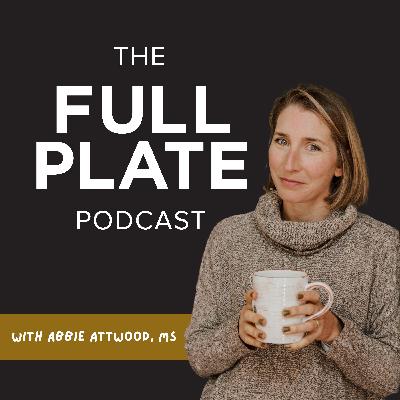
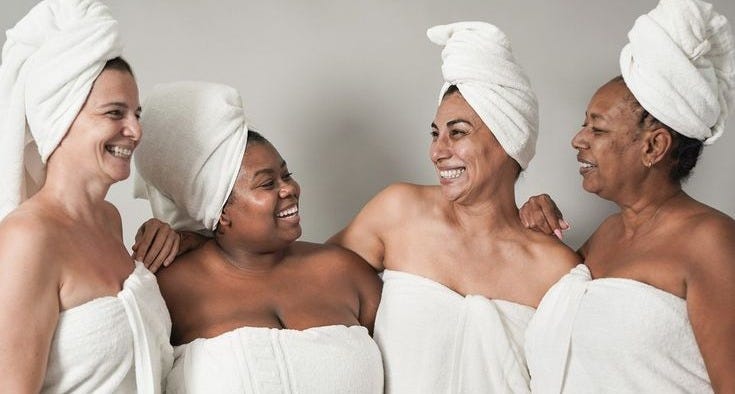
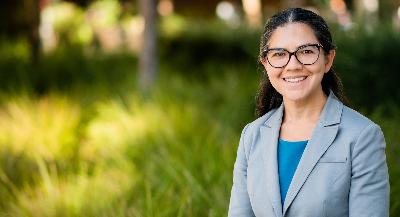

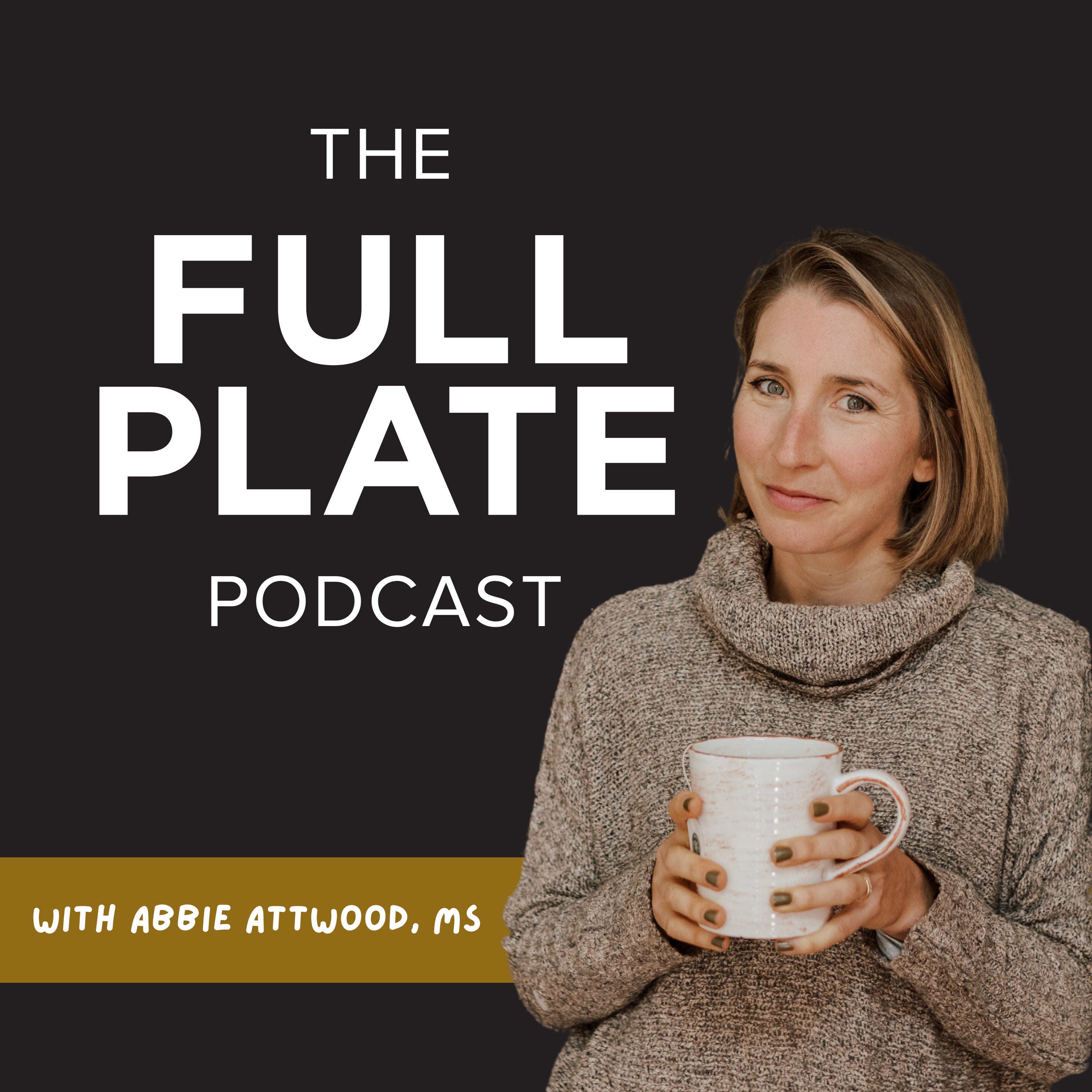
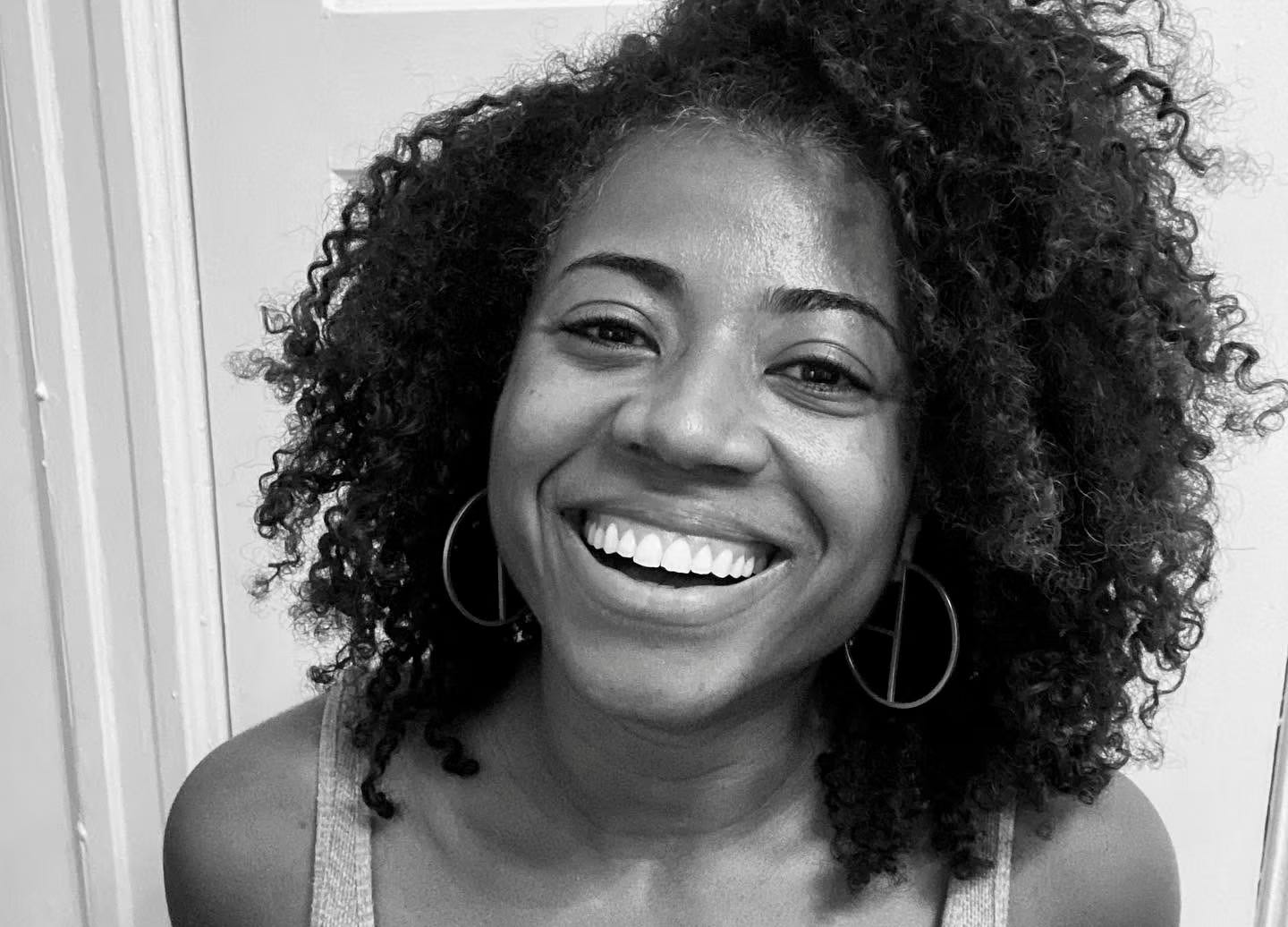



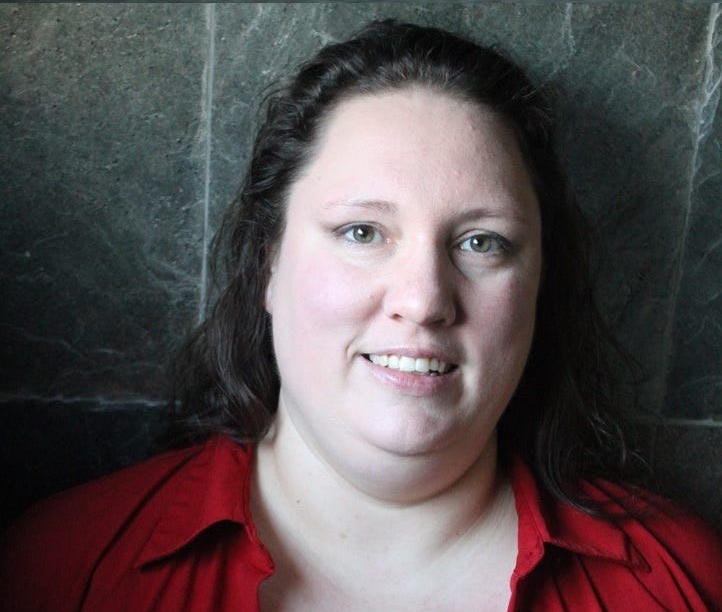
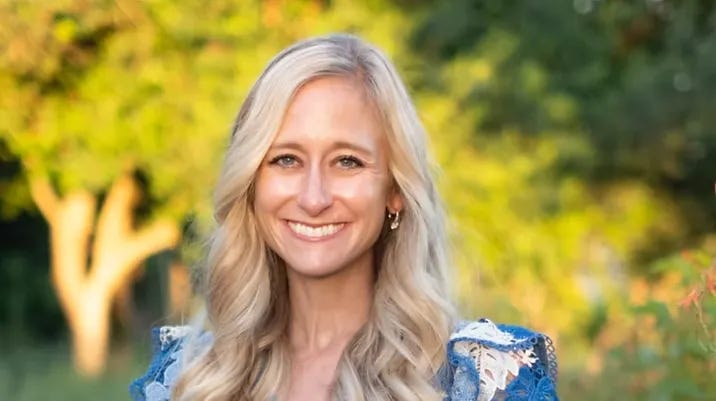
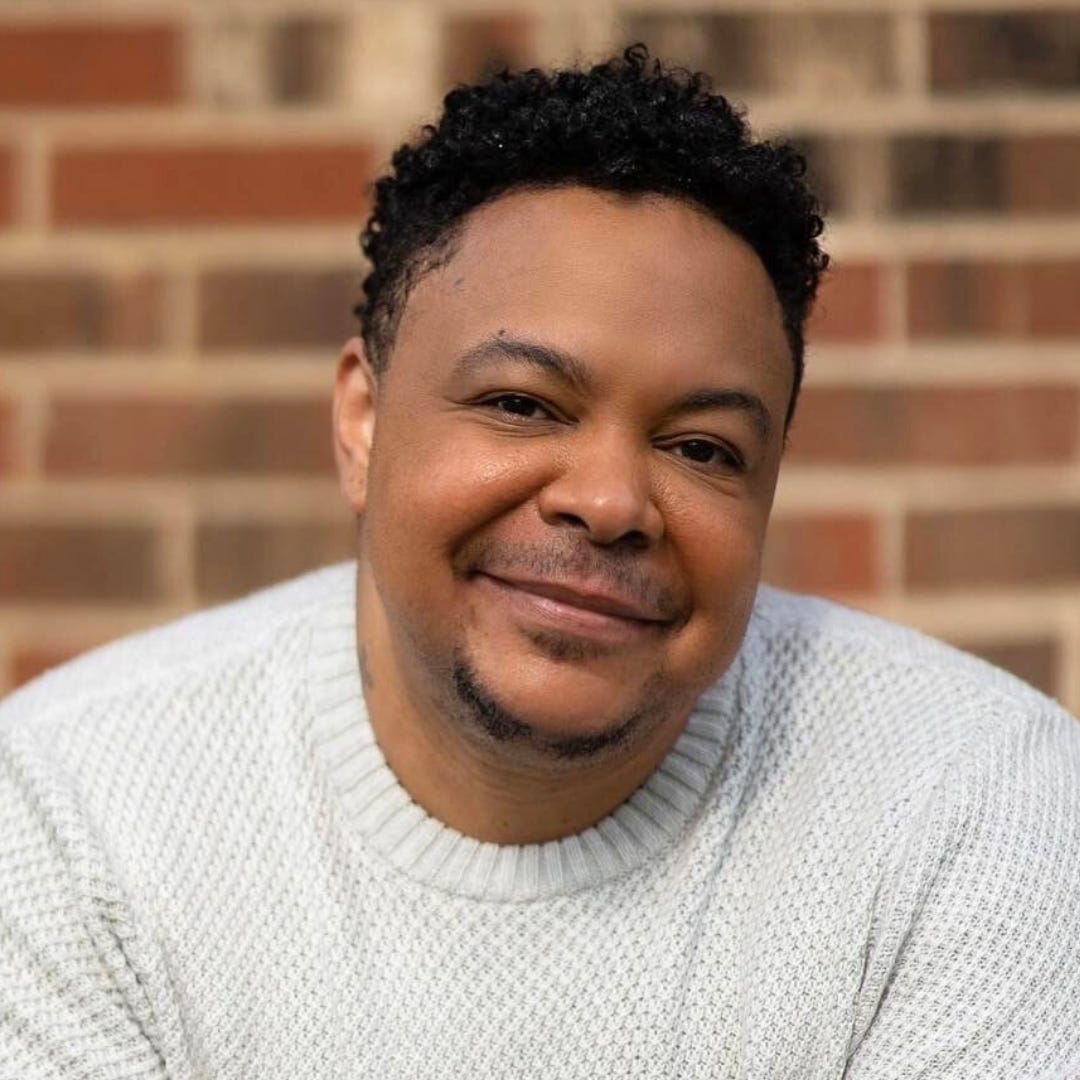

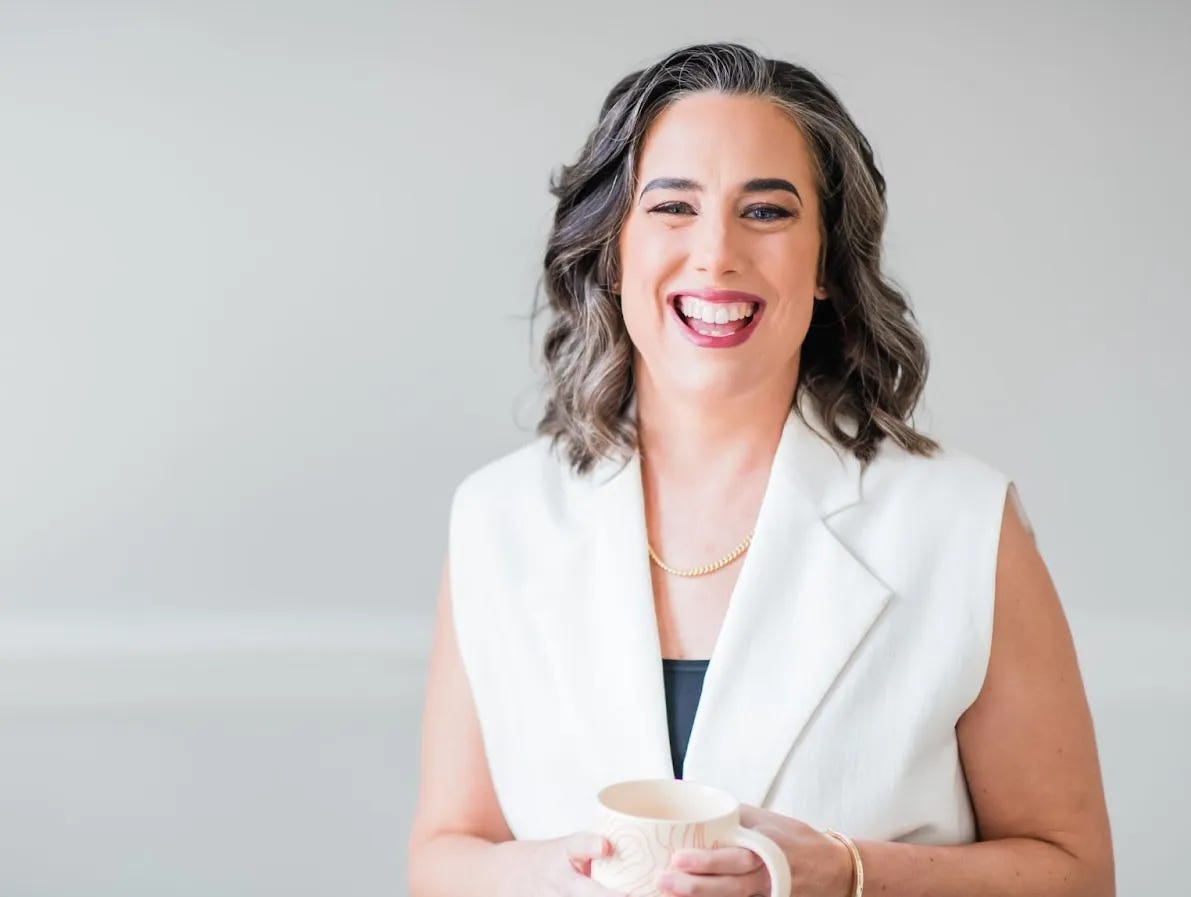
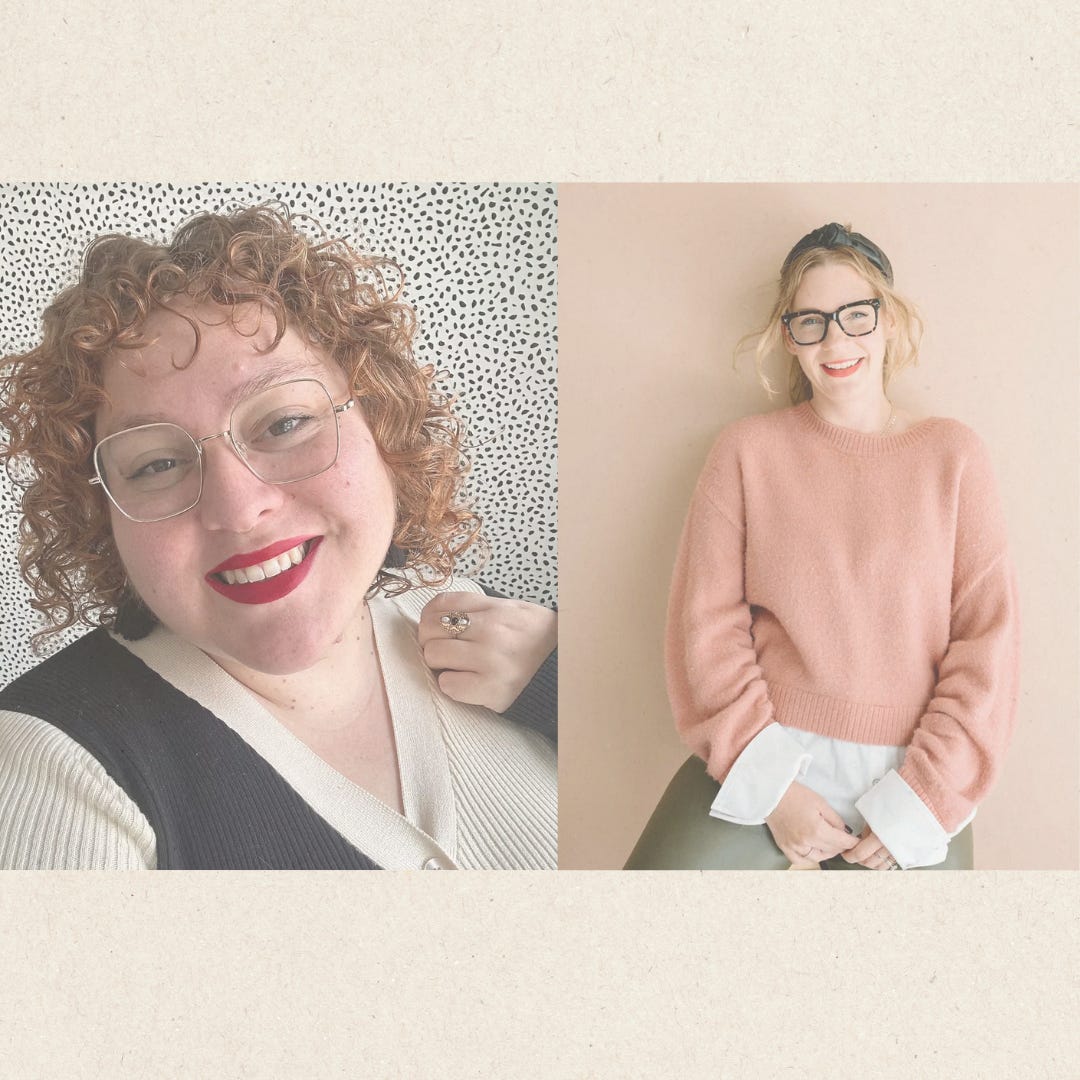
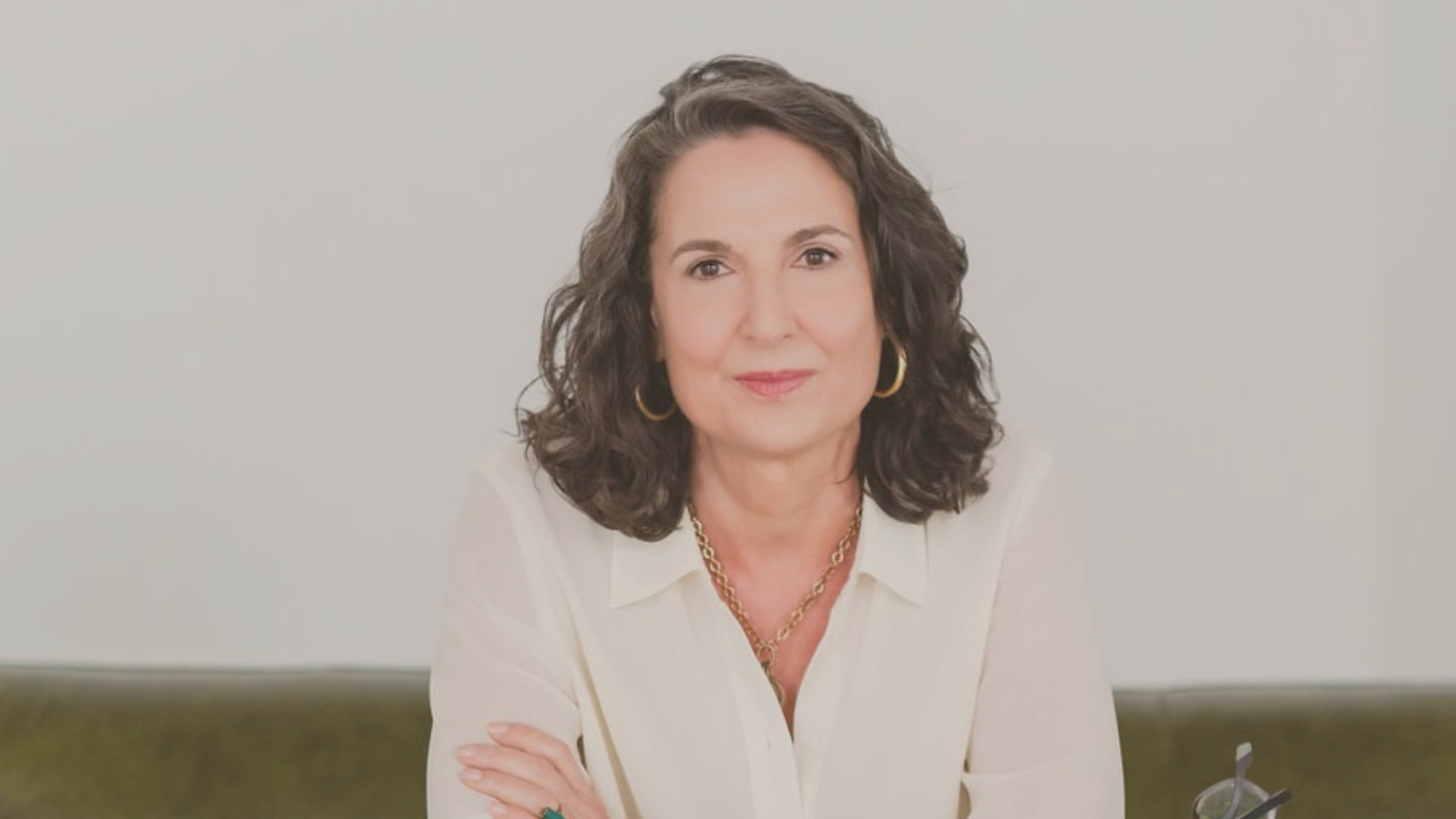
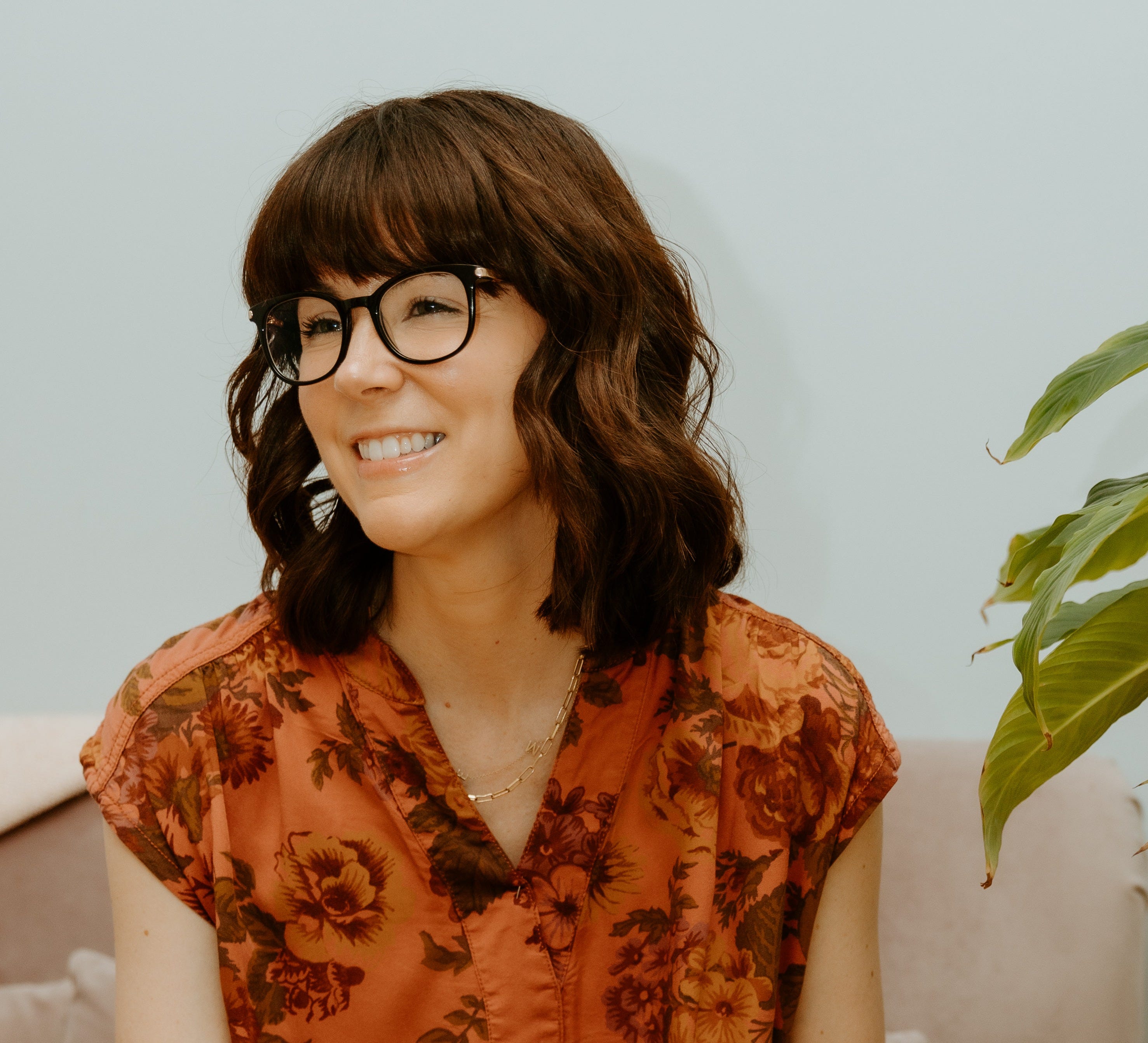
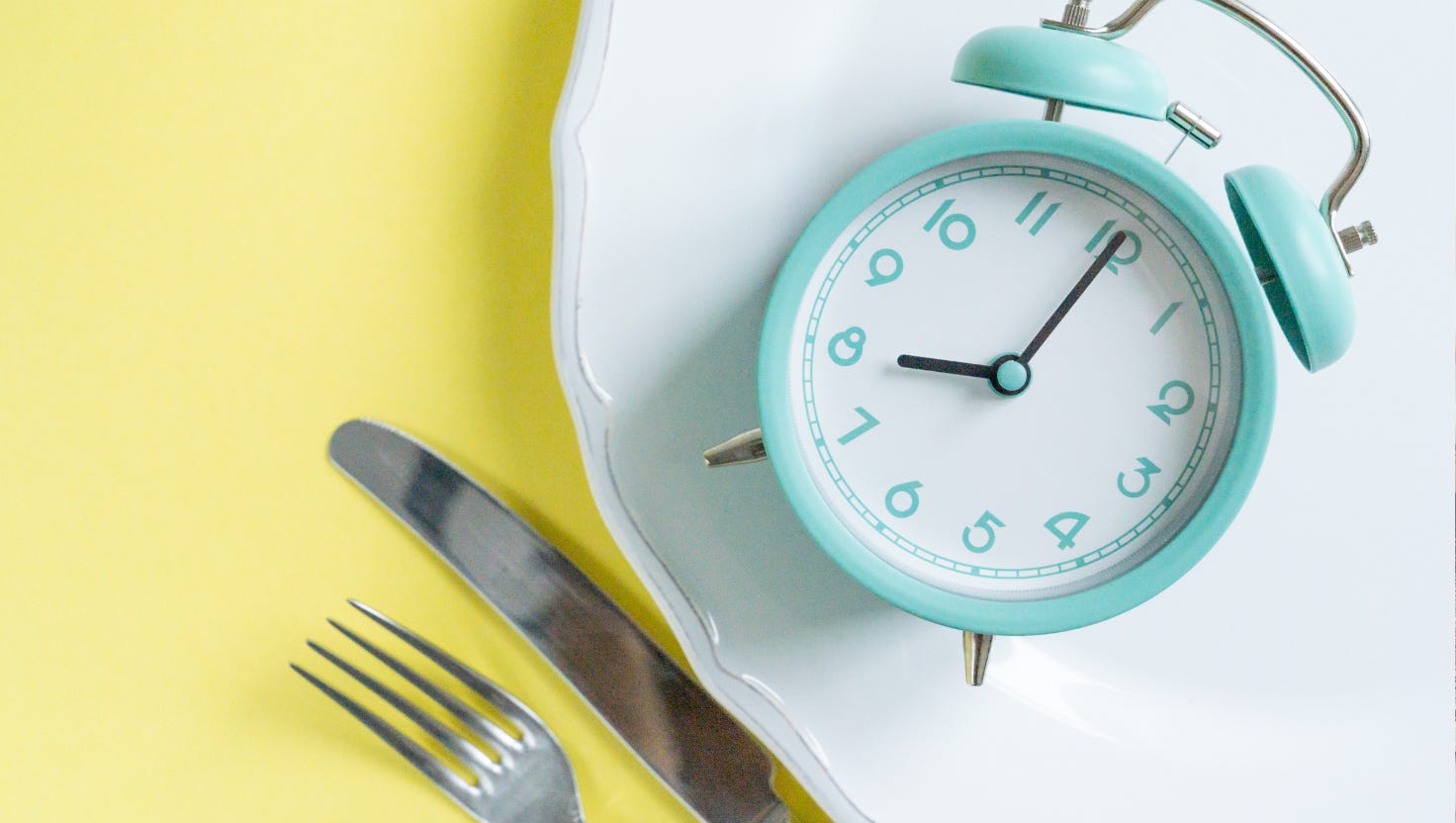



I love your podcast, but I couldn't listen for long because of all the 'likes' your interviewee used, sorry. She probably had interesting things to say, but it was just too much!
Absolutely love this podcast. I'm so thankful I get the episodes week to week, so I can digest the information, and put it to action. Thank you for doing this work!!
Whew.. this one was hard, but necessary. I miss the way I ate as a kid. I miss being carefree.
So excited for this podcast!